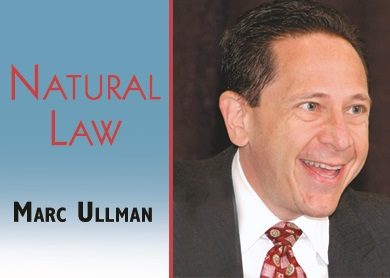Despite the popular mythology surrounding the “unregulated dietary supplement industry,” the reality is that both the U.S. Food and Drug Administration (FDA) and the Federal Trade Commission (FTC) have significant regulatory authority over the marketing of supplements. FDA’s primary jurisdiction covers product labels and labeling while FTC is focused on product advertising. There can be significant overlap between “labeling” and advertising, as the Federal Food Drug and Cosmetic Act considers labeling to be any material directly connected to the sale of any regulated product—including dietary supplements.
Both FDA and FTC are, in the first instance, concerned with what marketers say about their products. FDA for the purposes of determining whether a company is marketing an “unapproved new drug” and FTC to determine whether a claim is “truthful and not misleading” and can be substantiated. For both agencies, the bottom line is a concern that marketers of dietary supplements operate within the parameters of “structure function” claims (for example “Supports normal joint function” or “Supports optimal heart health”) and that adequate science exists to support these claims.
In addition, both agencies have made clear that they consider retailers subject to the same regulatory restrictions as any other marketer. This point was made perfectly clear in a July 12, 2012 Warning Letter issued by FDA to Alfa Vitamins Laboratories, Inc. citing “drug/disease treatment” claims on its Amazon.com online store. Significantly, the Warning Letter specifically noted Alfa’s use of search engine metatags that are used “to bring consumers to your web pages through Internet searches” provided evidence of the company’s intent to make unapproved drug claims. Examples of some of the metatags cited by FDA included: "cholesterol lowering supplements," "herbs for high blood pressure," "reduce your blood pressure," diabetes relief," "diabetes," "blood sugar supplement to regulate insulin," and "anti-cancer herbs." Metatags were also cited as the basis for a violation by FDA in a December 31, 2013 Warning Letter to Prestige Chinese Teas Company, Inc. Some of the metatags cited by FDA included: cholesterol reducing tea, lowering cholesterol naturally, diet lowering cholesterol, lowering cholesterol levels, cholesterol tea, and triglycerides levels.
FDA and FTC have also both repeatedly advised that they statements made by or on behalf of marketers on consider social media (Facebook, Twitter, Pininterest, etc.) to be advertising just as if the statements were made in print or other traditional forms of media. On September 23, 2014, the two agencies sent a joint Warning Letter to Natural Solutions Foundation citing the company and two individuals for making a variety of claims suggesting that a combination of colloidal silver and CBD hemp oil marketed by them could be useful in the treatment of Ebola virus. While it is no surprise that these claims resulted in action by both FDA and FTC, this warning letter (and two others issued on the same day) is noteworthy for its citation to Twitter and Facebook pages maintained by the company. Specifically, the agencies state that the statement “Ebola does have a cure” on a Natural Solutions’ Twitter account with a link to the company’s website which offers the colloidal silver and for sale is evidence of intended use to market those products as drugs. Similar claims on the company’s Facebook page are cited in the Warning Letter.
Maintaining and monitoring Web sites and social media can be a daunting task for retailers. Oftentimes responsibility for maintenance of these sites is left to web developers or internet marketing consultants who believe that the only thing that matters is attracting the greatest number of “likes” or webpage hits. However, both FDA and FTC monitor all forms of advertising on the web and both maintain social media accounts making it incumbent upon all marketers, including retailers, to take responsibility for and to monitor what is posted on all Web sites and social media platforms controlled by their companies. WF

Marc Ullman is a partner in New York City based Ullman, Shapiro & Ullman. His practice focuses on the dietary supplement/natural products industry with a particular emphasis on FDA and FTC compliance issues including Good Manufacturing Practices and product claims.
Posted October 1, 2014









